Much like human toddlers, puppies eat a lot as they grow. It is part of nature’s way of ensuring they get the proper amount of nutrition that their young, developing bodies require.
There is an old saying that goes, “dogs will eat everything you put down in front of them—whether they are actually hungry or not.”
This leads to the question of—Why is my German Shepherd always hungry?
A German Shepherd may exhibit continuous hunger for one or a combination of the following reasons:
- Instinctive feeling of food scarcity
- Intestinal bacterial overgrowth
- Pancreatic insufficiency
- Psychological issues
- Improper nutrition
- Intestinal cancers
- Cushing’s Disease
- Onset of diabetes
- Hyperthyroidism
- Aging
When a German Shepherd has an increase in food consumption to the point that it appears to be absolutely starved and perpetually hungry, the condition is referred to as polyphagia.
Some of the symptoms that may present with polyphagia include but are not limited to:
- Obesity
- Weight gain or weight loss
- Increased thirst (aka polydipsia)
- Increased appetite
- Increased frequency of urination (polyuria)
- Inability to adequately absorb food
There is also the possibility that, quite simply, your German Shepherd is experiencing natural feelings of hunger. However, a constant and ravenous hunger that seems to last for a considerable amount of time may very well point to another underlying cause.
In this post, we will go over some of the most common reasons why your German Shepherd may be exhibiting constant hunger.
Click Here to Jump to a Section
1. Basic Instinct

As the earlier descendant of today’s domesticated dog, the wolf may be one answer to the mystery of the ever-hungry German Shepherd.
A wolve’s natural instinct is to eat what it can when it can, and this instinct sometimes presents itself in today’s modern dog when it has the opportunity to eat. They sometimes treat each opportunity for food like it may be their last one.
They believe deep down on a genetic level that food can very well become a scarce commodity and a limited resource. Their feeling is that they are not guaranteed a meal every day, or even every few days, and this may cause their survival instinct to kick in.
If this becomes the case with your German Shepherd, then you are going to have to take control of the situation and exert your inner Alpha Leader.
Make an appointment with your dog’s vet, and access it’s daily dietary needs. Then, come up with a regular feeding schedule, and above all, stick to it!
Refrain from allowing anyone, family or visitors, from giving your dog any type of human table scraps or handouts. And with treats, only allow your dog to have them when it has earned them by following instructions or being calm and submissive.
(See the “Consistency in training” section in this post for more information about giving your dog a treat only after it has followed instruction)
When starting the new feeding schedule, make sure that the bowl of food is left down only until the first time that your German Shepherd walks away, or appears to lose interest in the meal.
This is when you will remove the bowl, whether the entire meal was eaten or not. This will serve to help your dog learn the schedule of mealtime, and that they can expect to not be getting anything until the next meal. As your dog gets in tune with a schedule, it should work to remove the desire of always looking for something to eat.
2. Psychology
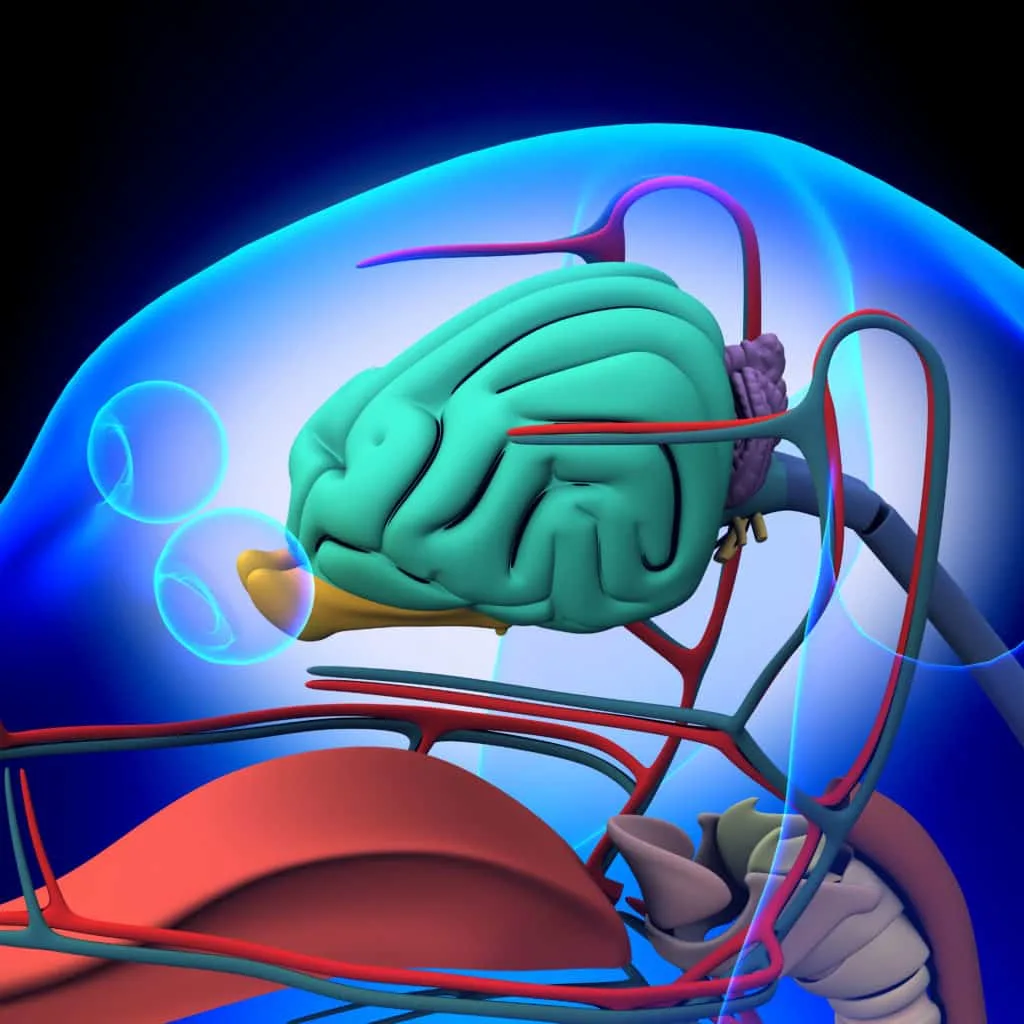
Another reason that your German Shepherd may always be acting like it is hungry may very well be based on psychology. Dogs are very habitual creatures, and as such any change in their mannerisms may indicate a deeper problem.
If your German Shepherd has always presented as a somewhat passive eater but then seems to become more greedy in nature, then it may be time to investigate the possibility of something more than just basic instinct at work.
Dogs, much like their human companions, can suffer from psychological issues. And when they do, often the first indication is a sudden and unexplained change in their personality as well as their habits.
One of the most common psychological reasons that a dog’s habits may change is because of a change in their physical environment. Some examples would be:
- Have you or your family recently moved?
- Has the German Shepherd recently been rehomed?
- Has there been a change recently in the household’s pack dynamic?
Changes such as these are known to bring about feelings of insecurity and anxiety, which in turn will lead to extra added stress on your German Shepherd.
In the case of a change in the pack dynamic, such as the case of the addition of a new dog to your home, you will need to supervise meals for a while. It is best to make sure that the newest member of the household is not trying to push the older member away from the bowl during feeding time.
(See this post for more on changes in your dog’s environment)
3. Improper Nutrition

When most owners think of improper nutrition, they think of it in terms of a loss of appetite, not increasing appetite. However, the problem can have both effects on your German Shepherd.
When it comes to store-bought, processed dog food, manufacturing companies pack the cans chock full of grains, starches and most of all fiber. Fiber is not as beneficial, or even beneficial in the same manner to dogs as it is to humans.
Fiber, much like in humans, can aid in a dog feeling full after a meal. However, science shows that carbs from starches, as well as from fiber, are but a small percent of the daily healthy requirements for our dogs.
In processed dog food, fiber is commonly used to replace much of the protein content, and as a result a dog may feel full for a while, but it isn’t long before it is looking for something to appease its increasing hunger. This will then lead to food-seeking behavior.
To make sure that your dog is getting a balanced and protein-rich meal, it is crucial that you feed them a nutritionally complete fresh food diet that is species-appropriate.
A consultation with your vet can go a long way, as they can suggest the best feeding choices for your individual dog. If the proper food is fed during each meal, then your German Shepherd will be less likely to be seeking an additional meal later.
4. Aging

As our canine companions age, their physical systems will go through some changes.
One of those changes can unfortunately be the inability of their system to properly digest, absorb, and make use of the food that they ingest. For this reason, many dogs, as they enter into their golden years, will appear to be hungry all the time.
This condition, more commonly referred to as malabsorption. This is an ailment that originates in the gastrointestinal tract of a German Shepherd, resulting in the effect that no matter how much food the dog eats, it will still feel hungry almost all of the time.
The treatment for malabsorption in aging dogs varies depending on what the root cause may actually be. In many instances, the German Shepherd will need to have a significant restructuring of their meals.
This meal restructuring may include the prescribing of a diet that is gluten-free in an attempt to ease the feeling of hunger, which in turn may help towards managing the condition.
5. Intestinal Bacterial Overgrowth
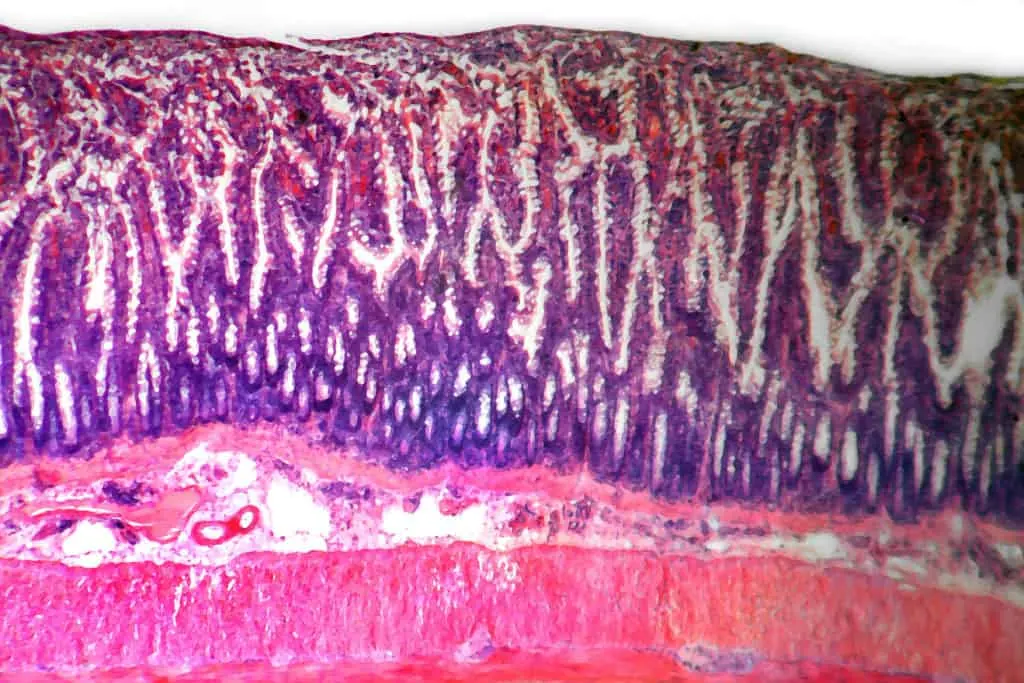
The intestines of most living creatures normally have lots of bacteria present. These bacteria aid in the normal process of allowing a dog’s body to break down ingested food, allowing its proper absorption.
However, the number of intestinal bacteria can sometimes grow too quickly, and this abnormal rate of growth may sometimes become the start of the problem.
With bacterial overgrowth in dogs, the area affected is that of the small intestines. The most commonly exhibited signs of small intestines bacterial overgrowth, or SIBO, are those of diarrhea and flatulence.
With the idiopathic form in the German Shepherd breed, some dogs may appear overly and excessively hungry, as well as engaging in the act of pica or stool ingestion.
The most commonly prescribed treatment for bacterial overgrowth is a series of broad-spectrum antibiotics that are taken orally. As a rule, the medicines most often chosen for use are those of tylosin, oxytetracycline, and metronidazole.
It is also advised that a change to the dog’s diet be made as well, along with the addition of yogurt products that contain the highly beneficial active and live cultures.
In most cases, the treatment is a life-long regime that focuses primarily on the German Shepherd’s diet, along with the inclusion of both medications and supplements.
6. Onset of Diabetes

Dogs owners are sometimes surprised to learn that many of the illnesses that we as humans suffer from also apply to their dogs. One such malady that affects both humans and dogs alike, is diabetes.
Diabetes mellitus, or uncontrolled levels of sugar in the bloodstream, is a disease that has a variety of factors that play into its development. Although it is widely thought that the German Shepherd is not genetically disposed to contracting diabetes, know that all dog breeds are susceptible.
When a German Shepherd develops diabetes, and the fluctuations in blood sugar that comes with it, they may present with constant and ferocious hunger. The reason being that, like their human counterparts, a dog’s body is unable to properly assimilate and process the amount of sugar present in the blood.
When this happens, the dog will suffer from low levels of blood sugar, which in turn will present with a significant impact on your German Shepherd’s appetite. The increase in appetite is the body’s way of making sure that the amount of sugar present in the bloodstream is adequate.
The treatment for dogs diagnosed with diabetes is pretty much the same as with humans. The dog will receive insulin injections, most often on a daily basis, in an effort to aid the body’s cells in making use of the blood sugar more efficiently.
Dietary changes are also commonly prescribed, which should help with the sudden spikes in blood sugar that are known to occur often. The treatment for German Shepherds diagnosed with diabetes can be long-term if not a life-long requirement.
7. Pancreatic Insufficiency
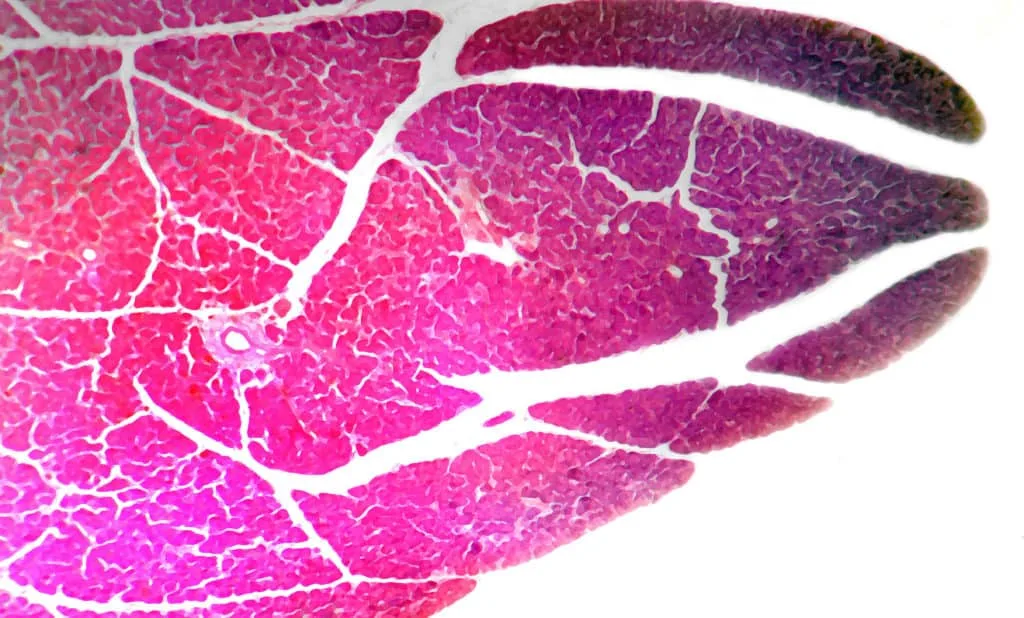
Commonly referred to as Endocrine Pancreatic Insufficiency, or EPI is when your German Shepherd’s body is not able to produce enough of the crucial pancreatic enzyme necessary for the breaking down and digesting of their food.
When this happens, the dog will show all the symptoms of starvation, including an ever-present hunger and appetite. Its body will trigger a hunger reaction in response to the fact that it is not receiving any benefits from the food that it’s already consuming.
At this current time, there is no cure known to work for EPI. However, while it is a serious condition, this does not necessarily mean that it’s an end of life issue. A dog diagnosed with EPI does will not necessarily experience a shortened life span.
If properly diagnosed, and the condition is treated properly, the dog can continue to enjoy as full and as active of a lifestyle as any other dog.
The current treatment for EPI for German Shepherds is that of the addition of pancreatic enzyme supplements to each of the dog’s meals.
When the enzymes are added to its food each time a dog is fed, the supplement works to help break down and aid in the digestion of the food from each meal. The supplement does not stay in your dog’s system, which is why it is to be added to each and every meal.
8. Hyperthyroidism

This condition presents the same in dogs as it does in humans. Essentially, hyperthyroidism occurs when the thyroid triggers an increase in a dog’s metabolism, which in turn sends every organ and system in the body into overdrive.
Because the thyroid controls all of the systems in the body, there is no one system that remains unaffected by the condition.
Hypothyroidism itself is brought on by the excessive production of the hormone thyroxine. This increased production is generally diagnosed as a result of aggressive thyroid cancer. The thyroxine is the very fuel that causes the increase of metabolism to occur.
Due to this constant state of increased metabolism, your German Shepherd’s body is continually sending out signals of hunger, in order to maintain the energy levels that are needed to survive.
Although the condition may be triggered by a diet that contains high levels of hormones, the usual culprit is that of an aggressive cancer of the thyroid, resulting in a tumor.
Unfortunately, more often than not, this diagnosis is terminal. Treatment is usually determined by one of multiple factors, including the size of any tumor present, and if said tumor has already metastasized to other organs or systems of the body.
9. Cushing’s Disease
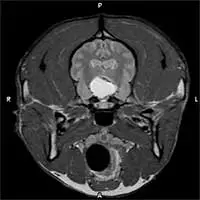
Cushing’s disease affects either the adrenal or the pituitary glands in your German Shepherd. The medical term for the syndrome, hyperadrenocorticism, is one in which the adrenal glands overproduce certain hormones.
The adrenal glands are commonly located near the kidneys of the dog, and are vital to the function and sustaining of the body systems needed for life. The most noted substance produced is cortisol, which if a dog’s body produces too much or too little of, can become life-threatening.
The are three ways in which Cushing’s Disease may come about:
- a pituitary gland tumor
- an adrenal gland tumor
- the prolonged use of steroids containing the hormone cortisol
No matter the actual cause of the syndrome, the presence of excessive hunger is one of the most common signs, along with increased water consumption and the resulting increased urination.
The increased hunger is in direct relation to cortisol levels being elevated within the dog’s body, as cortisol is a known appetite stimulate.
As for treatment, that depends on which form of the syndrome that the German Shepherd is diagnosed with. Treatment could simply mean the halting of any steroids that are being given to the dog, to the possibility of surgery to remove any tumors that may be present in the adrenal or pituitary glands.
Your vet may also introduce a different course of treatment, which will most often have to be followed to the letter and maintained on a regular and consistent basis.
10. Intestinal Cancers
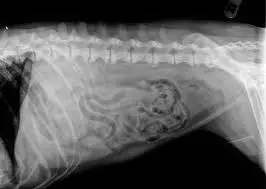
As mentioned above, when the intestines of a German Shepherd are affected, then there is usually a problem with the absorption of nutrients.
Many types of cancers that develop in our dogs are gastrointestinal in origin. The cancers usually present with tumors in either the rectum, stomach or the intestines.
Adenocarcinoma and leiomyosarcoma are two types of cancers that will present with excessive hunger in your dog, due to the fact they block the proper absorption of your dog’s food.
Both of these types of tumors are known to grow at a rapid pace. As a result, they typically are known to metastasize to other parts and organs of the dog’s body.
Although the current treatment is surgery, a lasting cure seldom results, as the cancer has more often than not already metastasized. Chemotherapy may be suggested but is usually found to be unsuccessful.
If a dog suffers from either of these types of cancers, survival time is usually anywhere from two to ten months.
In most cases, painkillers are highly advised, in an effort to lessen any pain that may be associated with the cancers.
11. Other Physiological Indications
If you have not had any recent changes in the household, or changes in your German Shepherd’s daily routine, and still you notice a difference in their hunger, then the symptoms may be physiologically based in nature.
The sudden onset of increased appetite in German Shepherds may possibly be an indication of one of several other underlying conditions.
Contact your veterinarian at this point for further evaluation.
Final thoughts
As shown in the underlying conditions presented above, increased hunger in your German Shepherd is often brought on by something interfering with your dog’s ability to adequately digest and absorb the nutrients of the food that it eats.
If you suspect that any of the above are reasons that your dog may be experiencing constant hunger, it is highly advised to consult with your veterinarian.
It is always wise to play it safe when it comes to your dog’s health. Doing so can have an enormous positive impact on your German Shepherd’s well-being.
